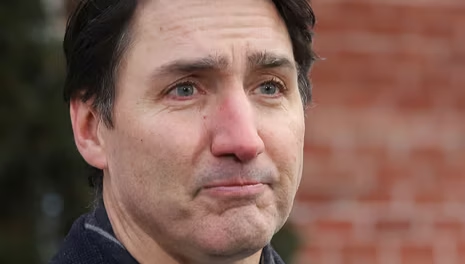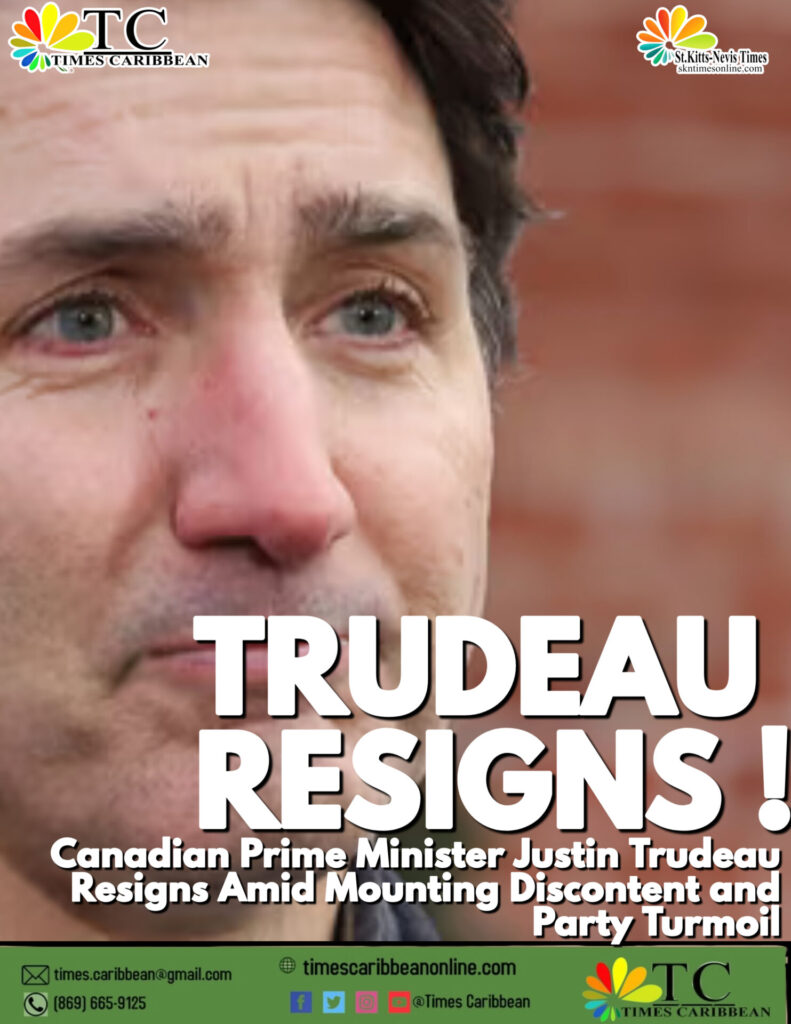Canadian Prime Minister Justin Trudeau Resigns Amid Mounting Discontent and Party Turmoil

Toronto (AP) – In a dramatic political development, Canadian Prime Minister Justin Trudeau announced his resignation on Monday, citing internal battles within his Liberal Party and growing public discontent over his leadership. The decision comes just weeks after the abrupt resignation of Finance Minister Chrystia Freeland, which exposed deep divisions within Trudeau’s government.
Trudeau, who has been in power since 2015, confirmed that he would remain as prime minister until the Liberal Party selects a new leader. “I don’t easily back down faced with a fight, especially a very important one for our party and the country,” Trudeau said in an emotional statement. “But I do this job because the interests of Canadians and the well-being of democracy are something that I hold dear.”
Leadership Crisis and Resignation Fallout
Trudeau’s announcement follows a series of political and economic challenges that have eroded his popularity, including soaring housing and food costs and contentious immigration policies. Recent disagreements with Freeland over economic measures, such as a proposed sales tax holiday and direct payments to citizens, further exacerbated tensions. Freeland, who also served as deputy prime minister, resigned on December 16, citing concerns about “costly political gimmicks.”
The timing of Trudeau’s resignation has led to the suspension of Parliament, which was set to resume on January 27, until March 24. This period will allow the Liberal Party to conduct a leadership race.
All three main opposition parties have declared intentions to topple the Liberal minority government in a no-confidence vote when Parliament reconvenes, making a spring general election almost inevitable.
Political Legacy and International Implications
Trudeau’s tenure began with high hopes in 2015, as he ended nearly a decade of Conservative rule and promised a return to Canada’s liberal roots. However, his popularity waned in recent years due to domestic challenges and international pressures, including strained relations with the United States.
US President-elect Donald Trump has issued threats of steep tariffs on Canadian goods unless the government curtails migration and drug flow into the US—a claim widely disputed by Canadian officials. Canada’s significant role as an exporter of oil, natural gas, steel, and autos to the US adds further stakes to the tense cross-border dynamics.
Path Forward for the Liberal Party
In his resignation speech, Trudeau expressed optimism about the future of his party. “The Liberal Party of Canada is an important institution in the history of our great country and democracy. A new prime minister and leader of the Liberal Party will carry its values and ideals into that next election,” he said.
Political analysts, however, suggest the party faces a tough road ahead. “His long silence following this political drama speaks volumes about the weakness of his current position,” noted Daniel Béland, a political science professor at McGill University.
As the Liberal Party braces for a leadership race and the country prepares for potential early elections, Trudeau’s resignation marks the end of an era and a turning point for Canadian politics.

Leave a comment
You must be logged in to post a comment.